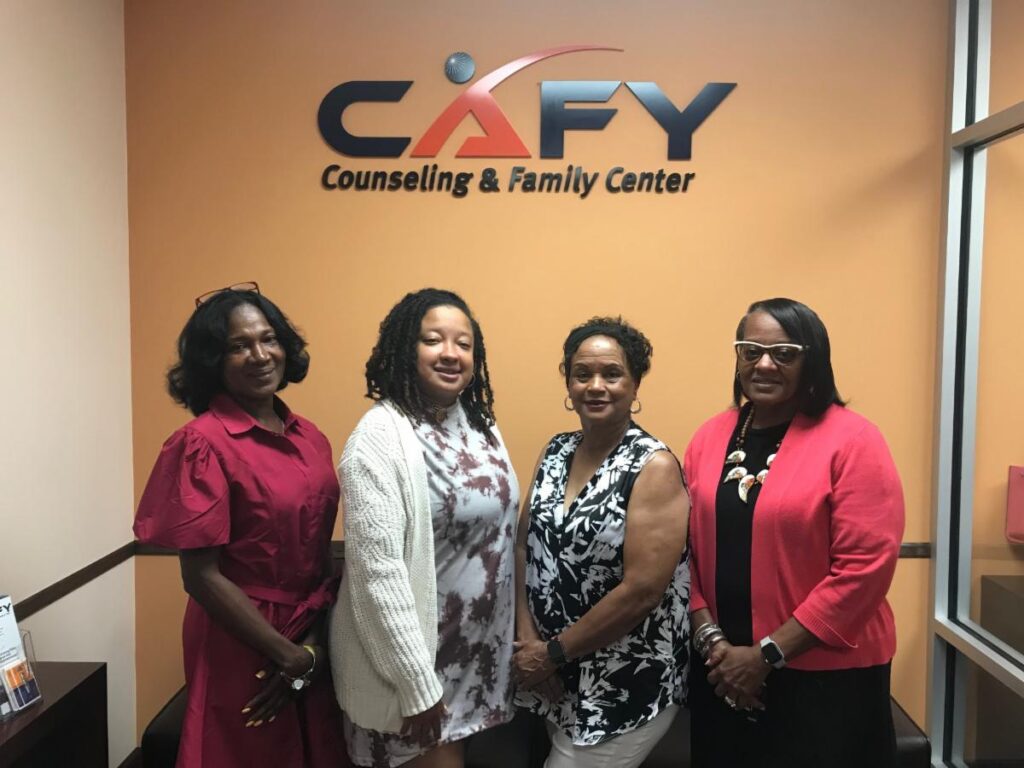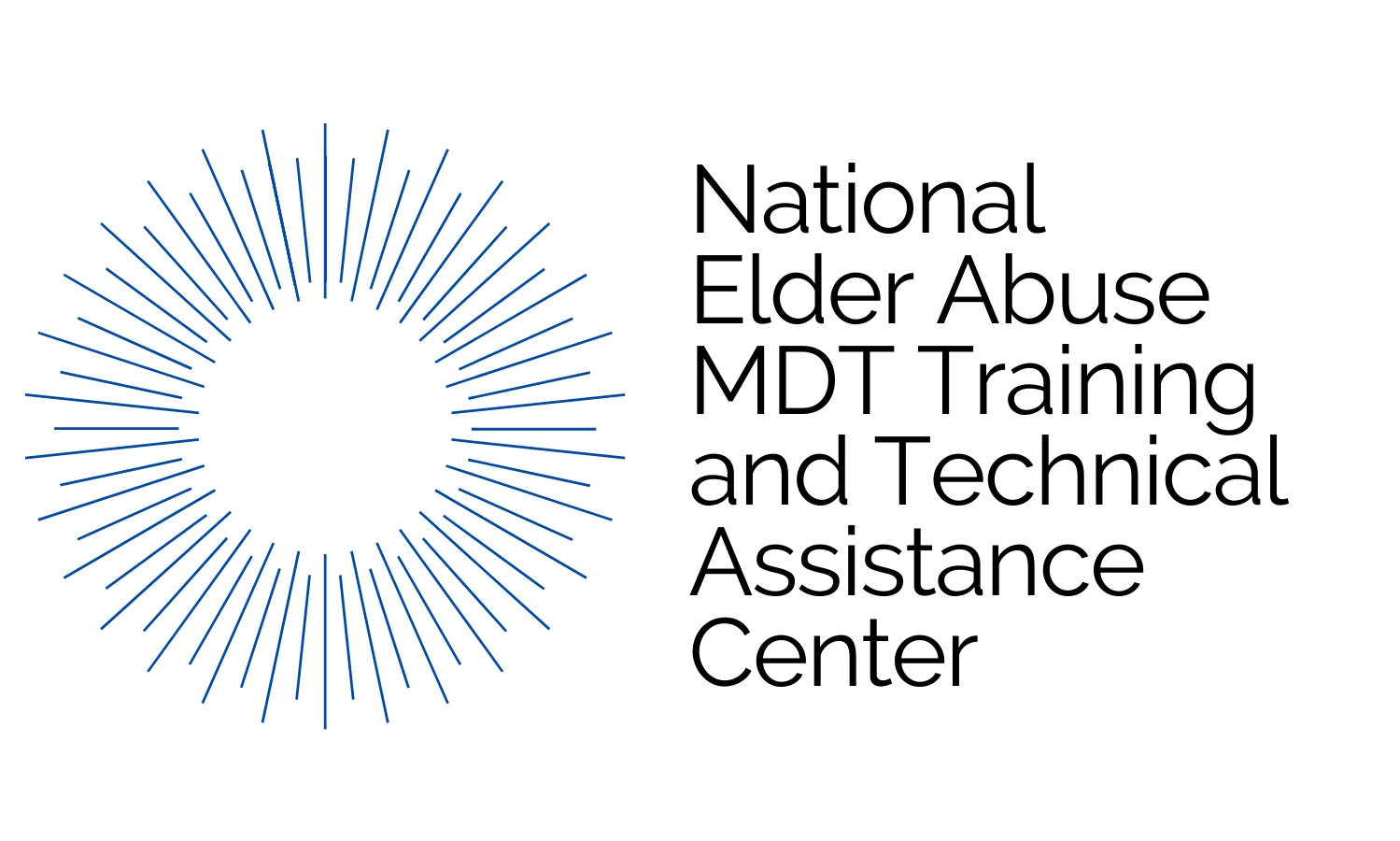
From left to right Sofia King; Alecia Chapman; Marjorie Lawson; Sheila Dashiell
Community Advocates for Family and Youth’s (CAFY) MDT is located in Prince George’s County, MD, where seniors are 16% of its population but 35%+ of the victimization. Our MDT-EA experienced team turnover, and it was hard to keep our MDT intact. With help from our MDT and others, we reallocated time and skills within our CAFY Team. We had advocates help identify cases; the senior care advocate stayed in contact with the seniors and implemented the next steps recommended by the team; the program specialist pulled together notes and documentation, scheduled the meetings, and worked with the Program Services Manager to present the case. This was needed to keep our MDT-EA together, maintain the momentum for our external members, and allow us to continue case reviews. We also were able to create opportunities for skills-building for our team as well. Kudos to the CAFY team members! We added new partners, kept the meetings consistent, and brought alternative approaches and solutions to the cases. Additionally, our MDT-EA team includes law enforcement from the Vulnerable Adult and Financial Fraud Unit; Prosecutors of Elder Abuse and Fraud/Identity Theft, Adult Protective Services, Quality of Health Control, and Dept. of Aging’s Ombudsman Unit, plus three community organizations (Services and Dementia), and a Certified Financial Fraud Examiner.
Achievements and Success Stories
Through the four case reviews, we were able to develop new partnerships and obtain a temporary ward from the court for a senior experiencing financial fraud by a local relative. Working together, we identified an out-of-state relative and, with direction from the Prosecutors’ office, helped the relative take action by filing a “show interest” paperwork to remove the senior from further financial risk and become a temporary ward of the state. We are also working to establish a collaborative process to support senior victims who are in nursing homes or assisted living facilities. Along with the above, the team has been successful in discussing cases, determining what is missing, identifying the gaps in services, getting the right partners to the table, and creating plans of action. We believe that our process improvement work with nursing homes can help protect seniors and develop the best collaborative case protocol for interventions at these facilities. We also provided space for APS to train and share with the team the what, how, and when of Adult Protective Services, which improved their participation and relationship with the team.
Helpful Resource/Offering from the Center
Our TA support has been amazing during these challenges. The Center has helped us with working with a variety of people internally, connecting us with other local agencies, guiding us in ways of how to keep the team together when we didn’t have a case, providing suggested copies of education, community assessment tools, job descriptions, and other tools designed to keep the program moving forward. The greatest takeaway from the Center’s TA was to make our meetings consistent. Even if we don’t have a case, we can host a training, talk about the process improvements, or continue to assess where the community is and find out what are the needs and exposures of the seniors in our area. Lastly, the Center was able to connect us with a local MDT group, which helped to simplify our meetings.
Quick Tip for E-MDT Coordinators
CAFY’s MDT quick tip would be to be flexible and continue to learn and get ideas from other MDTs and your TA providers. It has really helped us to keep things going and to grow. Now as we begin to plan to document our sustainability plan after year 2, we see we have solid outcomes, partners, and results we can share.


